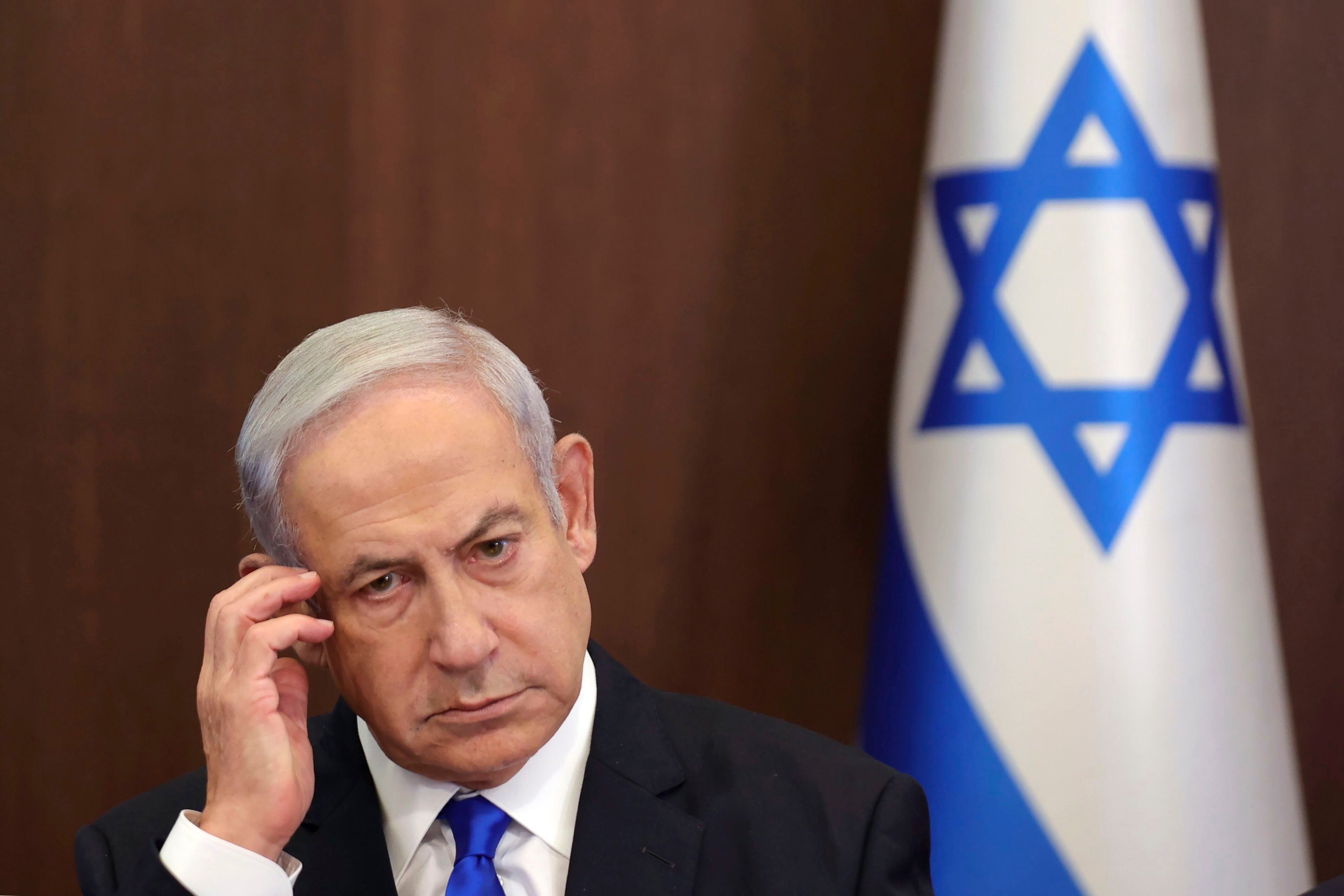
He Israeli Prime Minister Benjamin Netanyahu said this Wednesday, April 17, that his country will be the only one to decide whether it will respond to the massive airstrike carried out by Iran earlier this week, and how he will do it, rejecting calls from allies to act with restraint.
Israel has vowed to respond to Iran’s unprecedented attack without specifying when or how, which has left the region preparing for an escalation of the conflict after months of turmoil related to the war in the Gaza Strip.
Since the attack, Israel’s allies have urged the country to stop any response that could provoke an escalation. These calls were repeated on Wednesday during the visits of the foreign ministers of the United Kingdom and Germany.
The diplomatic pressure came as Iran’s president warned that even the “smallest” invasion of their territory would provoke a response “huge and severe.” Meanwhile, Violence increased on Wednesday between Israel and Hezbollah, the Iranian-backed Lebanese group, which fired a barrage of rockets into northern Israel. At least 14 Israeli soldiers were wounded in the attack, six of them seriously, its army said. Israeli military forces said they attacked Hezbollah targets inside Lebanon in response.
On Wednesday, in a meeting with his cabinet, Netanyahu said he met with both European ministers and thanked them for their support of their countries. But he noted that Israel will decide for itself how to respond, despite “all kinds of suggestions and advice” of Israel’s allies, some of whom, such as the United States, the United Kingdom and France, helped it repel the Iranian attack.
“I want to be clear: we will make our decisions for ourselves. The State of Israel will do whatever it takes to defend himselfNetanyahu said.
Despite the harsh rhetoric, it seems unlikely that Israel will directly attack Iran without the support of at least its main ally, the United States. But could resort to quieter methodssuch as attacking high-ranking Iranian commanders or Iranian-backed groups in other countries, or launching a cyberattack.
It is unclear how Iran would respond, given the rising tensions. Any incorrect calculation by either party risks unleashing a regional war.
On Tuesday, President Joe Biden’s administration announced new sanctions against Iran and has worked to coordinate a global condemnation to the attack while urging the parties to de-escalate the conflict. US officials reported earlier this week that Biden told Netanyahu that Washington would not participate in any offensive against Iran.
Over the weekend, Iran launched hundreds of missiles and drones at Israel in response to a suspected attack Israeli attack on the Iranian embassy compound in Syria on April 1in which 12 people died, including two Iranian generals.
Israel claimed that it and its allies successfully intercepted almost all of the missiles and drones. A 7-year-old girl was injured in the attackwhich did not cause any deaths or significant damage.
Israel and Iran have waged a proxy war for decades, but The weekend attack was the first military offensive Iran’s direct attack on Israel.
With tensions rising, Israel’s allies have insisted on a message of restraint. British Chancellor David Cameron and his German counterpart Annalena Baerbock They called for calm in separate visits to the region.
Cameron said that “it is clear that the Israelis are making a decision to act” against Iran, but I hope that do it “in an intelligent and severe way, and also do as little as possible to escalate the conflict.” Cameron spoke after meeting Israeli President Isaac Herzog, whose position is largely symbolic.
Baerbock said that Germany remains “in total solidarity with Israel,” but he called him to moderation.
“Everyone must now act prudently and responsibly. I’m not talking about giving up. I speak of prudent measure, which is nothing less than strength,” the Foreign Minister told the press. “Because Israel has already shown strength with its defensive victory at the weekend.”
The ministers pointed out that They will press for more sanctions to be imposed international negotiations on Iran.
Iranian President Ebrahim Raisi warned Israel not to retaliate. He delivered his message during an annual army parade, which was not carried out on its usual route and was not broadcast live on state television, possibly out of fear that it could be the target of an attack.
In statements reported by the official Iranian news agency IRNARaisi said that the weekend attack had been limitedand that if Iran had wanted to carry out a major attack, “there would be nothing left of the Zionist regime.”
